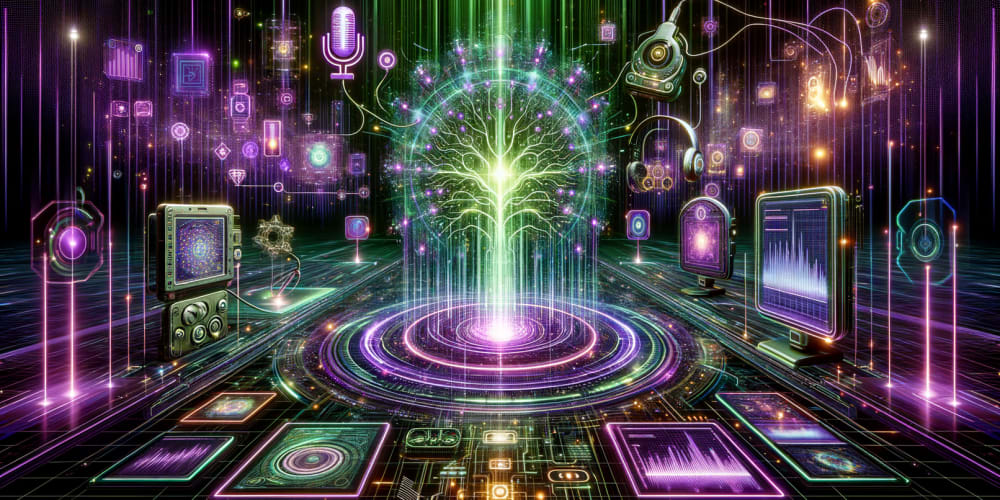In the vast landscape of education, innovation has always been the key to unlocking new possibilities and empowering students to reach their full potential. As we step into the era of Artificial Intelligence (AI), its impact on school education at The Modern School, Best Preschool in New Delhi cannot be understated. This technological marvel is reshaping the way we teach, learn, and interact, paving the way for a brighter and more engaging future.
Understanding AI in Education
Before delving into its impact, let's understand what AI truly is. Artificial Intelligence refers to the development of computer systems that can perform tasks that typically require human intelligence. These tasks include learning, reasoning, problem-solving, perception, and language understanding. In the context of education, AI offers a wide array of applications that enhance the learning experience and streamline administrative tasks.
Enhanced Learning Experience
One of the most significant impacts of AI on school education is the enhancement of the learning experience. AI-powered tools and platforms can personalize learning materials based on each student's strengths, weaknesses, and learning pace. AI has immense potential to revolutionize various aspects of the learning experience. One of the key applications is personalized learning, where AI algorithms analyze students' strengths, weaknesses, learning styles, and progress to tailor educational content and activities accordingly. This personalized approach helps students learn at their own pace, focus on areas that need improvement, and ultimately achieve better academic outcomes.
At The Modern School, ECNCR-Delhi, AI-powered adaptive learning platforms have become integral to our teaching methodology. These platforms analyze students' learning patterns, identify areas of improvement, and recommend personalized learning paths. As a result, students can learn at their own pace, focus on areas where they need additional support, and achieve better learning outcomes.
Efficient Administrative Processes
AI is not just transforming the classroom experience but also revolutionizing administrative processes within educational institutions. Tasks such as attendance management, grading, scheduling, and resource allocation can be automated with AI-powered systems. This automation reduces administrative burdens, allowing educators and staff to focus more on delivering quality education and supporting student growth.
The Modern School ECNCR-Delhi has embraced AI-driven administrative solutions to streamline operations and improve efficiency. From automated attendance tracking to AI-based scheduling systems, these technologies have significantly reduced manual workload and enhanced overall productivity.
Empowering Teachers
Contrary to common misconceptions, AI is not replacing teachers; rather, it is empowering them to be more effective educators. AI tools provide teachers with valuable insights into student progress, learning gaps, and instructional strategies. Armed with this data, teachers can tailor their teaching methods, provide targeted interventions, and offer personalized guidance to each student.
Moreover, AI-powered educational resources and virtual assistants enable teachers to create engaging and interactive lessons that cater to diverse learning styles. These resources supplement traditional teaching methods, making learning more dynamic and immersive.
Preparing Students for the Future
In today's rapidly evolving world, equipping students with future-ready skills is paramount. AI plays a crucial role in preparing students for the demands of the digital age. By incorporating AI education into the curriculum, students gain valuable experience in coding, data analysis, machine learning, and problem-solving—skills that are highly sought after in the job market.
At The Modern School, ECNCR-Delhi, we understand the importance of preparing students for the future. Our AI education initiatives expose students to cutting-edge technologies, coding workshops, and real-world projects that foster creativity, critical thinking, and innovation.
Ethical Considerations and Challenges
While the rise of AI brings immense opportunities, it also raises ethical considerations and challenges. Privacy concerns, algorithm bias, data security, and job displacement are among the key issues that need to be addressed responsibly. As educators and leaders, it is our responsibility to ensure that AI is deployed ethically and inclusively, prioritizing the well-being and rights of students and society as a whole.
A Hopeful Future
Despite the challenges, the future of AI in education is incredibly promising. As AI technologies continue to evolve, they will become more sophisticated, intuitive, and beneficial for educators, students, and educational institutions. The synergy between human intelligence and AI capabilities will drive innovation, foster collaboration, and create a more inclusive and equitable education system.
As we embrace the transformative power of AI at The Modern School ECNCR-Delhi, we remain committed to nurturing young minds, fostering a culture of lifelong learning, and preparing students to thrive in an AI-driven world. Together, we are shaping a future where education knows no bounds, and every student has the opportunity to unleash their full potential.
In conclusion, the rise of AI in school education is a testament to human ingenuity and our relentless pursuit of progress. Responsible use of AI involves ethical considerations, ensuring fairness, transparency, and accountability in its implementation. Collaborative efforts between educators, technologists, policymakers, and stakeholders are essential to harnessing AI's potential for the benefit of all learners.



















